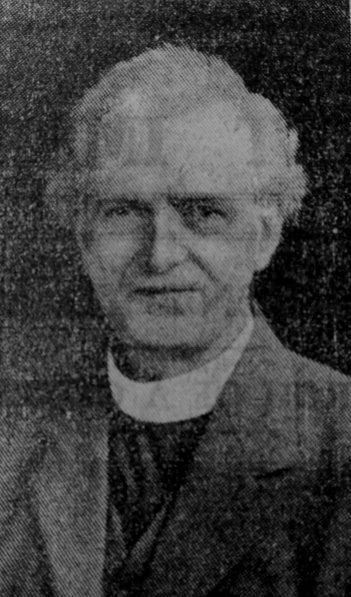Mexborough and Swinton Times March 21, 1930
Conisbro’s ” Bard “
The Rev. David Williams.
” Dewi Mai.”

A Welsh bard has been in living in Conisborough for the last eighteen months—the Rev. David Williams, minister in charge of the Wesleyan Methodist Church.
Born in Sirholly, Monmouthshire, Mr. Williams since childhood has been keenly interested in eisteddfodau and elocution. At the age of 18 he won a challenge medal for recitation open to the whole of South Wales and in the same year was second at an eisteddfod near home.
About that time Mr. Williams was studying for the ministry and for several years his interest in eisteddfodau and elocution Wayne.
But, as he told a “Times reporter, “the old fit came on me again, and in 1900 I won my first chair. It was at Llanidloes.
Known in Wales as “Dewi mai” Mr Williams continued to be successful and since 1900 he has won eight other chairs at Pontypool, Colwyn, Ferndalel, Langinning, Port Talbot and Maesteg, while he has been crowned twice at Swansea (1922) and Craig Cefn Parc (1923). Mr Williams is still hoping for further successes.
His time is not always been occupied as a competitor, for he has won a name for himself as a bardic adjudicator and has officiated in that capacity at many eisteddfodau in his native land, and recently at Doncaster.
At the latter Eisteddfod, Miss Gwenfrida Williams, a daughter of Mr Williams, officiated as adjudicator of the elocution class. Miss Williams is rapidly becoming known as a clever elocutionist and has appeared on platforms throughout the country.
Brought up as a Congregationalist, Mr Williams changed denomination as a youth at the age of 18 and entered the Wesleyan Methodist ministry as a lay evangelist in the Rhondda Valley. He later studied at Richmond College, Surrey and his first sphere of work as an instituted priest was at Ferndale, in the Rhondda Valley, where he has worked as a lay evangelist. Since then Mr Williams has has worked in St Davids, Llanidloes , Aberystwyth, Bynmaer, in England at Spilsby, Sleaford, Bacup, Rossendale, Longsight (Manchester), New Mills Goole, Harrogate, Worksop, Chesterfield and for the last 18 months at Conisbrough.
Mr Williams did not enter the Minister without long and careful thought. His histrionic talent was so marked that his friends pressed him to go on the stage, and for a long time there was within a conflict between two impulses. However, he felt a genuine vocation for the pulpit and the masonry, and it was in that direction that he was finally swayed. “I have not,” he said, “regretted it, for I have ever found my chief delight in preaching. Poetry comes second, and I’ve turn to it as in prayer for consolation.
“I have been a member of the Executive Committee of the National Eisteddfod for somewhere between 30 and 40 years. I have here the first bardic chair which I won about 40 years ago. When I brought it on after the Eisteddfod, I told my little boy that it was to be his after I had passed away. He was highly delighted and took possession of it at once, we had some difficulty in getting him to bed. It was mercifully hidden from me then that his father would be here when he was gone, for that dear little boy, like many thousands more, made the supreme sacrifice during the Great War.”
